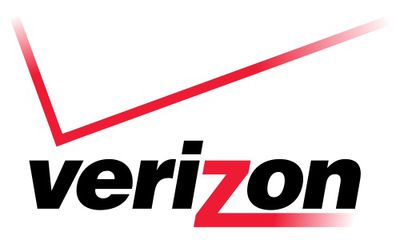Verizon Wireless today wrote a response letter to the FCC's concerns over its plan to throttle its grandfathered unlimited data customers during peak usage times, insisting that its upcoming usage restrictions are permitted under current law.
Penned by Verizon's SVP of Federal Regulatory Affairs, Kathleen Grillo, the letter (via The Verge) also points towards the unlimited data restrictions imposed by other carriers like AT&T, T-Mobile, and Sprint, which Verizon says are more draconian than its own throttling plans.

More importantly, Verizon also hammers on the fact that every other major wireless provider in the United States -- AT&T, Sprint, and T-Mobile -- has already implemented some form of data throttling or "network optimization" as it's often called. Verizon goes a step further and says its competitors often have "less tailored" policies that can impact customers regardless of network congestion.
Verizon goes on to emphasize the limited conditions under which its customers will experience LTE throttling, stating slowdowns will occur only at "particular cell sites experiencing unusually high demand" and noting that throttling will end when cell sites become less congested.
According to Verizon's website, throttling will also be limited to the top five percent of customers and only those who have completed their two-year contracts will be affected. As of July, Verizon's top five percent of users consisted of customers who used 4.7GB or more of data during the month.
Verizon's letter is in response to a strongly-worded letter sent last week by FCC Chairman Tom Wheeler, which stated he was "deeply troubled" by Verizon's throttling plans. In the missive, Wheeler sent Verizon a series of questions asking the company to explain its rationale for treating customers differently based on data plan type and asking whether the policy was justified under the FCC's Open Internet rules.
Verizon plans to begin throttling its high-usage LTE customers accessing congested network cells beginning on October 1, and it is unclear if the FCC will take steps to prevent the throttling.
As noted in Verizon's letter, several other carriers have implemented LTE usage restrictions for customers on grandfathered unlimited plans in an effort to encourage users to switch to pay-by-usage tiered data plans, but the FCC has intervened in Verizon's case due to Verizon's use of Upper C Block spectrum that is subjected to a open platform rule.
























Top Rated Comments
While true that most of Net Neutrality has been struck down in court, this is different. This is coded into law: Code of Federal Regulations. This is what VZW bought into and has to abide by it.
Specifically, 47 CFR 27.16 (c)(1) which can be found in its entirety here (http://www.law.cornell.edu/cfr/text/47/27.16). It's not a long read either. Or, if you prefer, here: http://www.gpo.gov/fdsys/pkg/CFR-2011-title47-vol2/pdf/CFR-2011-title47-vol2-sec27-16.pdf
The specific part I'm quoting says the following:
"The potential for ex- cessive bandwidth demand alone shall not constitute grounds for denying, limiting or restricting access to the network."
This will be interesting. We will see what happens, I guess.
----------
The original article said you would be throttled until the cell site you are using is no longer under load.
See here (http://www.verizonwireless.com/news/article/2014/07/network-optimization.html) for more info.
The operations at Jurassic Park were legal and look how well that worked out. In the words of Dr. Ian Malcolm: "Yeah, yeah, but your scientists were so preoccupied with whether or not they could that they didn't stop to think if they should."